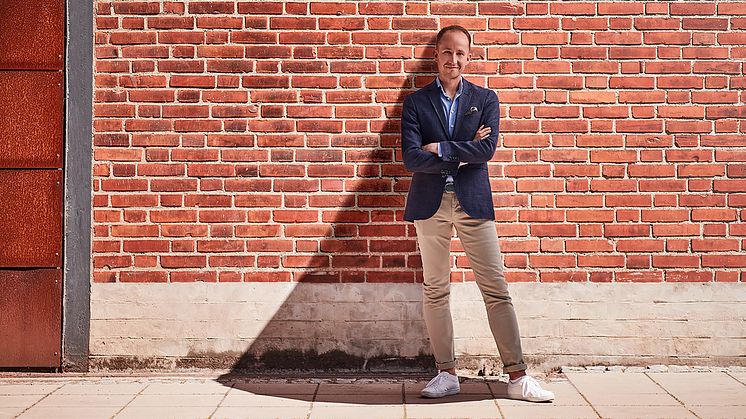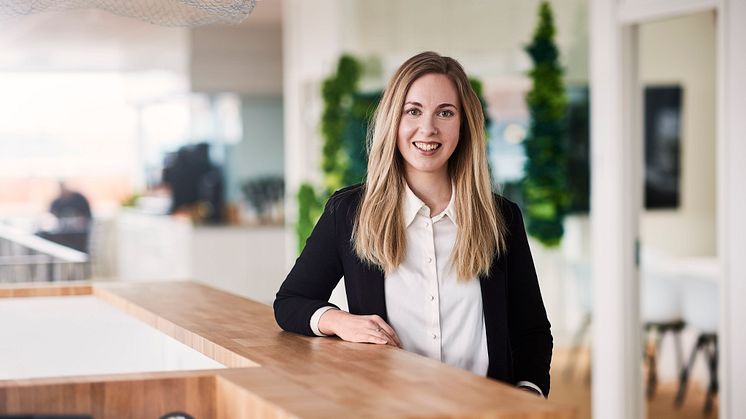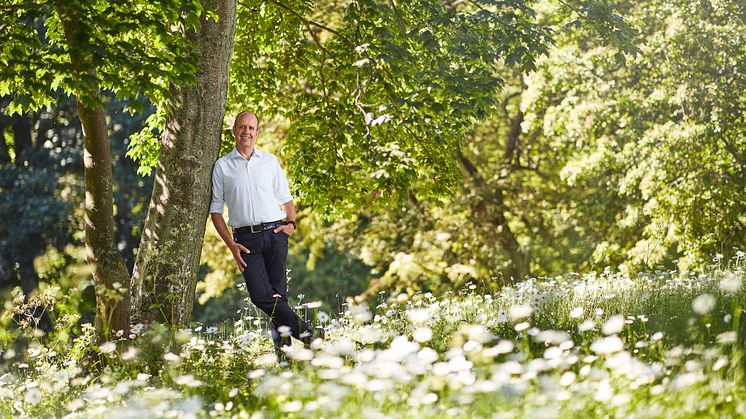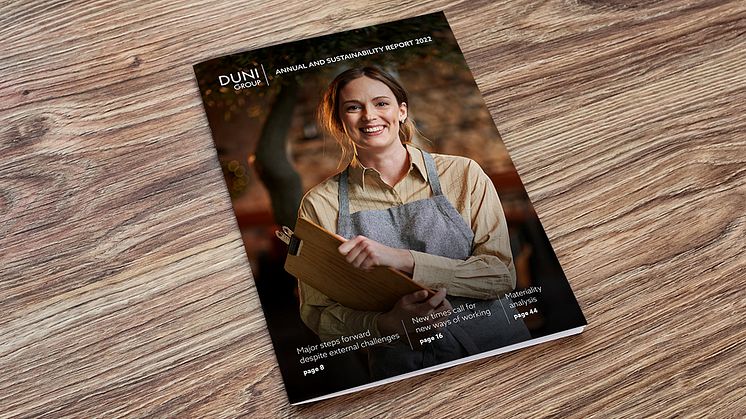
Blog post -
We are moving towards a more sustainable and relevant product range
The Duni business area has taken several important steps towards a more sustainable product portfolio during the year. At the same time, it is important that we keep inspiring customers with design and colors, and that we deliver in accordance with our brand promise of Sustainable Goodfoodmood®.
Circular at Scale is one of Duni Group’s three important sustainability goals. This is a huge challenge for the Duni business area, where single-use products such as napkins and table covers are big sellers. As a first step, the business area is focusing on seeing how the products can become more sustainable at the beginning and at the end of their life cycle. The goal is to reduce the use of virgin raw materials.
“One very important activity for us is to look at how we can use recycled fibers in our products and packaging solutions. This would drastically reduce our fairly large environmental impact in production,” explains Hanna Banica, Marketing Director, Business Area Duni. “We’re also investigating how we can design our products in a holistic flow, such as home composting.”
Key breakthroughs
The business area had two major breakthroughs back in 2021. Two employees at the factory in Bramsche, Germany, succeeded in producing a fossil-free binder based on potato starch, which resulted in the material BioDunicel® and environmentally adapted placemats. In addition, a series of more sustainable premium napkins, BioDunisoft®, was launched with a pioneering, fossil-free binder made from materials including lemon peels and corn. Both ranges are fossil-free, but are also compostable. The products are supplied in new fiber-based packaging in which all plastic has been replaced with paper or cardboard.
Sustainable relaunch of big sellers
This provides a good foundation for the business area, and the converting of the range is continuing quickly. Among other things, work was underway to prepare the launch of BioDunisoft® Unicolours in January 2023.
“It’s full speed ahead for BioDunisoft®, and after the turn of the year we’ll be launching our Unicolours single-colored napkins in 24 different colors. This is a large part of our portfolio that’s being re-launched and switched over to bio-based materials. It’s a huge step,” says Hanna.
Exploring the market for sustainable table covers
BioDunicel® bio-based table covers are being given a more cautious launch. We have conducted market studies, as there is a noticeable difference in quality when switching from the latex-based to the biobased binder in the table covers.
“We’ve heard customers comment that they’re experiencing a difference. So we’ve chosen a calmer introduction to the market. We’ll be launching a pilot in 2023, in which we’ll launch a number of Bio- Dunicel® articles to see how they’re received on the market. Based on this launch, we’ll decide on a full converting or whether more product development is needed,” explains Hanna.
Sustainable Goodfoodmood® crucial to the offering
In the new strategy, sustainability runs through all of the Group’s operations. At the same time, Hanna believes that we must not lose sight of the fact that the Duni brand must also be synonymous with solutions where people meet and enjoy pleasant moments together around food and drink.
“Of course, we’ll do it in a sustainable way, and that will be demanded of us to survive and be relevant in the market. But Duni must also inspire, we must stand for Goodfoodmood®. It’s about the colors, the design, and the atmosphere we create with our products.”
***
Business Area Duni Life cycle analyses speak for themselves
BioDunisoft® generates 19.1% lower CO2 emissions than standard Dunisoft®. This means that a complete transition to BioDunisoft® would result in a reduction of 3,137 tonnes of CO2e, which is equivalent to driving 18.29 million km in a normal car.
BioDunicel®, for its part, generates 28% lower CO2 emissions than conventional Dunicel® material. A 100% transition to BioDunicel® would mean a reduction of 3,084 tonnes of CO2e. That is the equivalent of 17.98 million kilometers in a normal car. The audited LCA report is available on Duni Group’s website.





